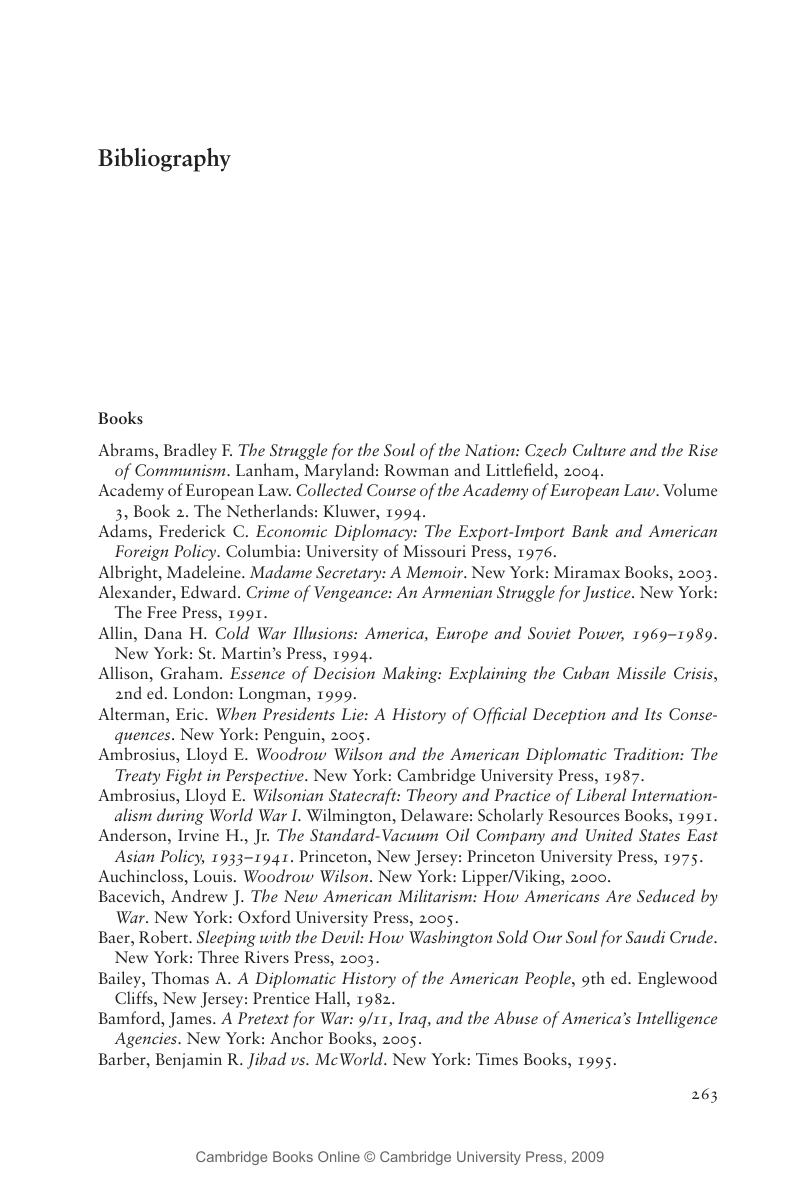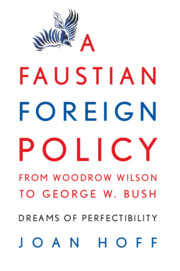Book contents
- Frontmatter
- Contents
- Introduction: Toward a Faustian Diplomacy
- 1 The United States Forms and Refines Its Diplomacy
- 2 The Faustian Impact of World War I on U.S. Diplomacy
- 3 The Faustian Aspects of Prosperity, Depression, and War
- 4 Faustian Aspects of U.S. Cold War Foreign Policy
- 5 Cold War Transformation of the American Presidency
- 6 The United States Adrift in the Post–Cold War World
- 7 Flaunting Faustian Foreign Policy
- Epilogue: The Legacy of George W. Bush
- Notes
- Bibliography
- Index
- References
Bibliography
Published online by Cambridge University Press: 18 August 2009
- Frontmatter
- Contents
- Introduction: Toward a Faustian Diplomacy
- 1 The United States Forms and Refines Its Diplomacy
- 2 The Faustian Impact of World War I on U.S. Diplomacy
- 3 The Faustian Aspects of Prosperity, Depression, and War
- 4 Faustian Aspects of U.S. Cold War Foreign Policy
- 5 Cold War Transformation of the American Presidency
- 6 The United States Adrift in the Post–Cold War World
- 7 Flaunting Faustian Foreign Policy
- Epilogue: The Legacy of George W. Bush
- Notes
- Bibliography
- Index
- References
Summary

- Type
- Chapter
- Information
- A Faustian Foreign Policy from Woodrow Wilson to George W. BushDreams of Perfectibility, pp. 263 - 288Publisher: Cambridge University PressPrint publication year: 2007



